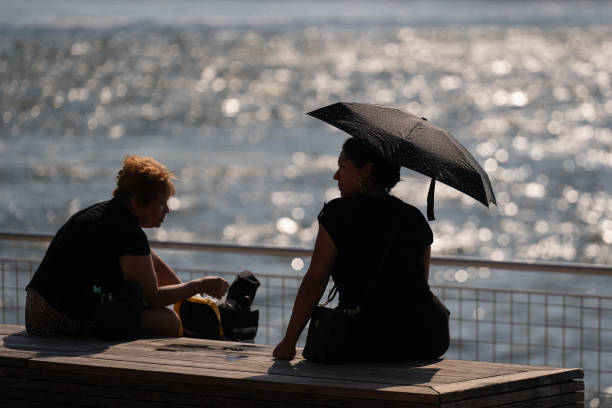Millions of Americans are bracing for continued sweltering conditions as Labor Day weekend approaches, with a significant portion of the country under excessive heat watches and warnings.
A brutal heatwave that hit the Midwest earlier this week has now spread to the eastern half of the U.S., affecting more than 20 million people under various heat alerts.
Cities across central U.S. states—including Arkansas, Missouri, Illinois, Tennessee, Kentucky, and Indiana—are enduring extreme heat, with heat index values soaring to 105°F (40°C).
Coastal cities in South Carolina and Virginia are also experiencing similar conditions.

The National Weather Service (NWS) has issued warnings about the dangers of this extreme heat, noting that it poses serious risks to anyone without adequate cooling or hydration. The heatwave is already straining health systems, heat-sensitive industries, and infrastructure.
Despite the intense heat, there is some relief in sight. Meteorologists predict that the weather will cool down, particularly along the East Coast, just in time for Labor Day as a cold front is expected to move in.
However, the Southeast may continue to see scattered storms, adding to the complexity of the weather situation.
The ongoing climate crisis, driven largely by fossil fuel consumption, deforestation, and methane emissions, is intensifying the frequency, duration, and severity of heat waves, according to the World Health Organization.
Extreme heat is the leading cause of weather-related deaths in the U.S., claiming approximately 1,220 lives annually, as reported by the Centers for Disease Control and Prevention.
The American Red Cross advises people in affected areas to limit outdoor activities, stay hydrated, and seek air-conditioned environments to avoid heat-related illnesses. Vulnerable groups, including children, the elderly, outdoor workers, and those without stable housing, are especially at risk during this heatwave.

